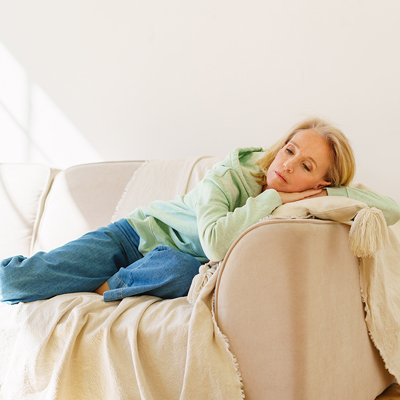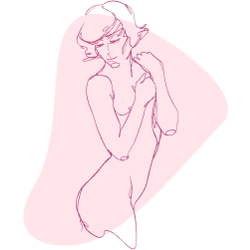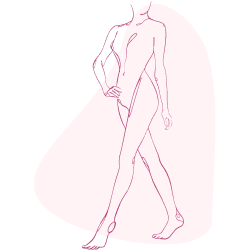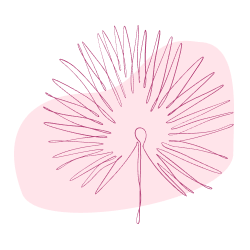Menopause
About menopause, its causes and treatment options
We provide support and treatment for the symptoms associated with menopause, such as hot flashes, vaginal dryness, and mood changes.

What is menopause?
Menopause (the ‘change of life’) happens when your ovaries stop making hormones and eggs. When that happens, your menstrual cycle will stop.
Doctors define menopause as no periods for one full year. Your periods, however, don’t simply switch off. You may experience many different symptoms over a number of years as you go through your journey of menopause.


When does menopause happen?
For most Australian women, menopause happens between the ages of 45 and 55 and lasts around eight years. Your genetics can affect when it begins, as can your ovary health and general health.
Menopause is a process that includes perimenopause and post-menopause. Many women start having menopausal symptoms about four years before their last period (perimenopause). Symptoms can often last about four years after a woman’s last period (post-menopause).
What are the symptoms of menopause?
Every woman has their own experience of menopause, but symptoms generally include:
- hot flushes
- night sweats
- sleep disturbances
- joint pain
- anxiety or mood swings
- changes in libido (sex drive)
- bone loss
- changes to your vagina
- changes in body weight.
Some of these symptoms can have a big impact on your everyday life.


Why does menopause happen?
The main culprit behind menopause is falling levels of the female sex hormones, mainly oestrogen. This usually happens as a natural part of aging and results in loss of ovulation and the end of the menstrual cycle.
However, during perimenopause oestrogen and progesterone levels fluctuate widely causing the common symptoms of menopause.
What are the main treatments for menopause?
Menopause is a natural part of life, and you only need to treat the symptoms of menopause if they impact your daily life. Treatments could include:
- prescription medicines like menopausal hormone therapy (MHT, which used to be called HRT)
- non-prescription medicines or supplements
- lifestyle changes (such as wearing loose clothing if sweating is a problem)
What should I do if I think I’m menopausal?
If you think you are menopausal, or if you are concerned about irregular patterns of bleeding, Venus Women’s Clinics can help. We offer evidence-backed quality diagnosis and management of menopause and its symptoms. Put your health first with the caring and compassionate health professionals at Venus Women’s Clinics.

NOTE: While it is reviewed for clinical accuracy, the content on the Venus Women’s Clinic website does not replace professional advice. This information should not be used as an alternative to professional healthcare. If you have a particular medical problem, please consult a doctor or a specialist.

